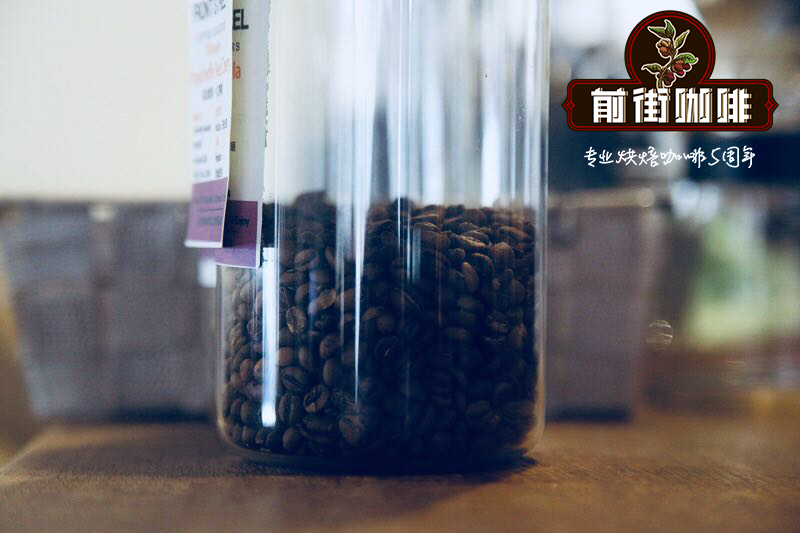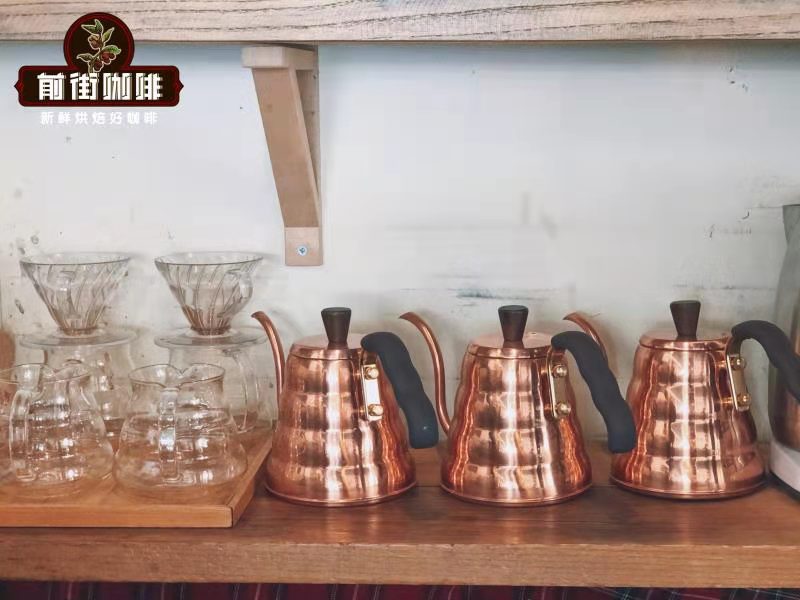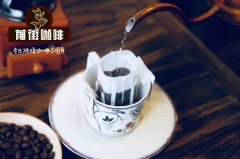How to buy Arabica coffee beans? What are the characteristics of Arabica coffee beans

Professional coffee knowledge exchange more coffee bean information please follow the coffee workshop (Wechat official account cafe_style)
"Coffee culture" is full of every moment of life. No matter at home, in the office, or on various social occasions, people are tasting coffee, which is gradually associated with fashion and modern life. Coffee beans are often divided into two main categories according to different coffee tree species: Arabica and Robusta.
● Arabica Coffee beans (Arabica)
At present, most of the high-quality coffee that is highly accepted by the public comes from Arabica beans, accounting for about 70% of the world's coffee production. It has a rich and delicate taste, strong smell, high acidity, slippery texture, and is not easy to have bitter taste, but its caffeine content only accounts for about 1% of the total weight. Arabica mainly grows in high altitude areas, grows slowly, and is easily infected with diseases and insect pests.
● Robusta (Robusta)
The word Robusta originally means "tenacity". As the name implies, it is not demanding on the growth environment, but its yield is twice as high as that of Arabica trees, and its resistance to diseases and insect pests is relatively strong. Due to Robusta's chlorogenic acid and trigonelline: the source of bitterness in coffee is high in caffeine, so it tastes naturally bitter, strong sour, and has a strong taste. Therefore, most of them are not drunk alone in business, and are often used as the main ingredient of instant coffee or used in espresso to form blended beans.
Then maybe everyone will ask, then the coffee I bought said it was Yega snow coffee. What kind of coffee is this? As a matter of fact, most of the finished coffee we buy are Arabica coffee beans, but due to the different origin of this bean, it has different coffee flavor. as a result, according to their respective place names and characteristics, the names of coffee such as Guatemala and Yega Chefe appeared.
● Yega Snow Coffee
Yejasuffe is the representative of African Ethiopian beans. Yejasuffe was originally the name of the town, because it is rich in this kind of coffee beans, so it is named. The typical flavor of Yejasuffe refers to the strong aromas of jasmine, lemon, peach, almond and tea. After drinking Yejia snow coffee, someone commented: "Coffee entrance, flowers in full bloom!" Just like a flower touches the comfort of taste buds and olfactory cells in the nasal cavity. In addition to the fragrance of the flowers, the delicate thickness is like a silk massage in the mouth. " The description is just right!
● Manning
Manning is produced in Sumatra, Indonesia, Asia, also known as Sumatran Coffee. Manning coffee is considered to be the most mellow coffee in the world. When tasting Mantenin, you can feel obvious lubrication on the tip of the tongue and low acidity, but this acidity can also be obviously tasted. Leaping slight acid mixed with the richest aroma, so that you can easily feel the lively factor in the mild fragrance. In addition, this coffee has a faint earthy aroma, and some people describe it as the aroma of herbs. Its bitterness is soaked into the throat, has a strong fragrance, no disguise, no affectation. The aftertaste is syrup and astringent, very direct.
With so many introductions, you must also have a preliminary understanding of coffee-however! Arabica is not the same as good coffee, and Robusta is not absolutely cheap coffee! The quality of coffee beans cannot be judged arbitrarily by the seed and price of beans, so. Ask weakly: what the heck is 100% Arabica? are you proud to drink like this?
● Arabica Coffee Bean Brand recommendation
Arabica coffee beans baked in front street coffee are fully guaranteed in terms of brand and quality. And more importantly, the performance-to-price ratio is extremely high, each pack of 227 grams, the price is only 70-90 yuan or so. According to the calculation of 15 grams of coffee beans per cup, a bag of coffee can make 15 cups of coffee, which costs only about 5 or 6 yuan per cup, which is recommended by conscience compared to the price of hundreds of cups sold in cafes.
Qianjie coffee: Guangzhou bakery, the store is small but a variety of beans, you can find a variety of unknown beans, but also provide online store services. Https://shop104210103.taobao.com
Important Notice :
前街咖啡 FrontStreet Coffee has moved to new addredd:
FrontStreet Coffee Address: 315,Donghua East Road,GuangZhou
Tel:020 38364473
- Prev

Arabica Coffee Classification what kinds of Arabica coffee beans are there and how much is Arabica?
Professional coffee knowledge exchange more coffee bean information please pay attention to the coffee workshop (Wechat official account cafe_style) Arabica species account for 70% of all coffee production, is the most important commercial coffee beans. Arabica coffee beans were introduced into Europe from the Arab region and can be divided into Tibika species and bourbon subspecies according to their different places of introduction. In addition, through genetic mutation and heterozygosity
- Next

What are Arabica coffee beans? Is Arabica bean coffee equal to good coffee?
Professional coffee knowledge exchange more coffee bean information please follow the coffee workshop (Wechat official account cafe_style) what are Arabica coffee beans? Is Arabica bean coffee equal to good coffee? When it comes to Arabica beans, you have to mention robusta coffee beans that are on a par with them. ● Chapter 1 | Arabica beans Robusta beans | Coffee beans in the world
Related
- Beginners will see the "Coffee pull flower" guide!
- What is the difference between ice blog purified milk and ordinary milk coffee?
- Why is the Philippines the largest producer of crops in Liberia?
- For coffee extraction, should the fine powder be retained?
- How does extracted espresso fill pressed powder? How much strength does it take to press the powder?
- How to make jasmine cold extract coffee? Is the jasmine + latte good?
- Will this little toy really make the coffee taste better? How does Lily Drip affect coffee extraction?
- Will the action of slapping the filter cup also affect coffee extraction?
- What's the difference between powder-to-water ratio and powder-to-liquid ratio?
- What is the Ethiopian local species? What does it have to do with Heirloom native species?

